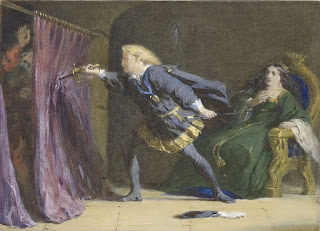Gun Powder Plot in Macbeth | Is Macbeth Inspired By Gun Powder Plot?
The Gunpowder Plot of 1605 is often linked to William Shakespeare's play Macbeth, although it is not directly referenced within the text. The Gunpowder Plot was a failed attempt by a group of English Catholics to assassinate King James I and blow up the Parliament. This event had a significant impact on the public consciousness and the political climate of the time, which Shakespeare would have been acutely aware of while writing Macbeth.
Here are some ways in which the Gunpowder Plot might have influenced Macbeth:
Themes of Treason and Regicide: Macbeth revolves around the murder of King Duncan, which mirrors the treasonous intent of the Gunpowder Plot conspirators. The play explores themes of loyalty, betrayal, and the consequences of regicide.
The Character of Macbeth: Macbeth's ambition and his ultimate decision to murder the king for personal gain can be seen as a reflection of the conspirators' motivations to kill King James I and seize power.
The Atmosphere of Fear and Suspicion: The atmosphere in Macbeth is one of paranoia and mistrust, much like the environment in England following the discovery of the Gunpowder Plot. This pervasive sense of unease would have resonated with contemporary audiences.
Divine Right of Kings: King James I was a strong proponent of the divine right of kings, and Macbeth reinforces this ideology by portraying the dire consequences of violating this natural order.
Supernatural Elements: The witches in Macbeth and their prophecies can be seen as a reflection of the contemporary fascination with and fear of witchcraft and the supernatural, topics King James I was notably interested in, having written a treatise on demonology.
Historical Allusions: Some scholars suggest that Shakespeare may have included subtle references to the Gunpowder Plot, such as the "equivocation" speech by the Porter in Act 2, Scene 3, which could be an allusion to the Catholic practice of equivocation used by the plotters when questioned.
While there is no definitive proof that Shakespeare wrote Macbeth with the Gunpowder Plot specifically in mind, the play's exploration of themes related to treason, power, and moral order would have certainly resonated with an audience aware of the recent plot against their king and country.








Comments